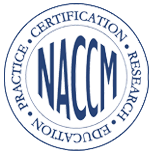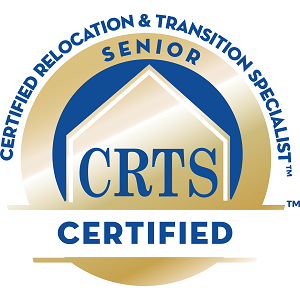5 Ways to Support Seniors During National Human Rights Month
December is National Human Rights Month – dedicated to equality, justice, and dignity for all. It’s also a great reason to support seniors and recognize the challenges they can face as their cognitive and physical abilities slow down.
Aging often brings with it a withdrawal from society. Our families grow up and no longer depend on us, we retire from our careers, and we face losses of spouses, friends, and homes. It also often brings physical and cognitive decline. The social and biological realities of aging can leave seniors feeling left behind and unseen. Equality, justice, and dignity may seem like they only apply to the younger and more able.
Watching our parents and other older loved ones experience losses and declining health is painful. So is knowing that they may feel helpless because so much has been taken from them.
There are ways we can help in everyday moments when we might not even realize our actions can make a difference in their outlook.
5 Ways to Support Seniors This Month and All Year Round
What can you do every day to support your senior loved ones this month and all year round? Here are five ideas:
Remind Them They’re an Integral Part of Your Family Unit
About 20% of seniors over 65 feel useless, and that number increases as they age. Seniors who are no longer working or raising a family may feel like they’re no longer contributing members of society. Without the responsibilities and connections that jobs and families brought them, they may feel like they’re falling behind on social progress or like their lives are obsolete.
After spending the bulk of their lives working and caring for others, losing those responsibilities makes them feel like a burden, especially if they now need help with activities of daily living that they used to do independently or used to help others do.
Keep your senior in the family loop! Visit them, take them to family functions, ask for their help with their areas of expertise or things they used to enjoy doing. As the holidays approach, ask them to share a tradition or help with a recipe. Keep those family ties strong.
Respect Their Decisions and Lifestyle Choices
After decades of independence, many seniors find themselves needing to rely on others for the first time. Physical and cognitive decline can leave them dependent on others for transportation, shopping, medical assistance, or taking care of their homes. But that doesn’t always mean they’re unable to think or make decisions for themselves.
Resist the urge to make decisions for your loved one, if possible. Instead, offer your help and support. They have years of knowledge and experience to support their choices and personal beliefs and preferences that are just as valid as when they were younger. They may move slower than they used to or have different opinions and ideas than you, but if they’re physically and cognitively able to make their own decisions, they deserve to.
Having autonomy relates to dignity and self-esteem. Autonomy has also been linked to longevity, lower levels of depression, and slower cognitive decline.
Even if a loved one is cognitively impaired, offering them choices in everyday situations, like which shirt to wear or what to eat for lunch, can allow them some autonomy and dignity. Please resist the urge to help too much by making every decision for them.
Be An Advocate in Times of Need
If they do face health issues or develop dementia, your emotional support and assistance navigating the healthcare system can help reduce the risk of complications and misunderstandings, leading to better outcomes. It can also give them a feeling of security knowing they have someone on their side.
As we age, our body’s ability to respond to infections and metabolize medications declines, putting seniors at risk of complications, including hospital-induced delirium, which can cause confusion, agitation, and even hallucinations. In fact, even an illness as seemingly benign as a urinary tract infection can cause delirium.
If your senior develops a new medical problem or requires hospitalization, even the sharpest person can suddenly seem confused and helpless. When they can’t advocate for themselves, your advocacy can help them communicate with healthcare providers, prevent medical or food-related errors, help them get assistance when they need it, and help them feel safer.
Encourage Healthy Habits
Whether your senior family member is living independently, with you, or in a care facility, healthy habits are beneficial to their overall health. Encourage or provide healthy food options, exercise, and activities that engage their cognitive functioning, like puzzles or board games.
A healthy diet boosts the immune system and provides essential antioxidants, vitamins, and minerals. Sugar and fat-filled foods, on the other hand, weaken the immune system and can cause inflammation. Exercise benefits their body and mind, and brain-boosting activities can help keep them engaged.
Resist the temptation to take your loved one treats and unhealthy snacks when you visit. Instead, how about fresh fruit or vegetables from your garden or farmer’s market or a healthy homemade treat made with love in your own kitchen? Better yet, shop or garden together.
Encourage Connection
Loneliness and social isolation are growing problems for seniors. Life changes like living alone, mobility impairments, losing a spouse or home, and sensory changes, like hearing loss, can all result in isolation.
Social isolation can increase your senior’s risk of health problems like dementia, heart disease, stroke, mental illness, and early death. Seniors who feel connected with their community have fewer health problems, improved cognitive function, and higher self-esteem.
Whether your senior lives at home alone or in a community, encourage them to stay connected with family and friends. Many communities have senior centers with activities and classes for members, and many senior communities have onsite activities and social functions.
We’re Here for Both of You
The changes that are a result of aging can be complex. Our loved ones’ physical and mental health can suffer, but we can support their best health in small ways every day.
At Reflections, our geriatric care manager can help you keep your loved one as safe and as independent as possible, wherever they call home. We’re here to help improve your senior’s health, reduce hospital visits, and encourage engagement with their community.
Visit our website to learn more about our care management services or to request a meeting.














